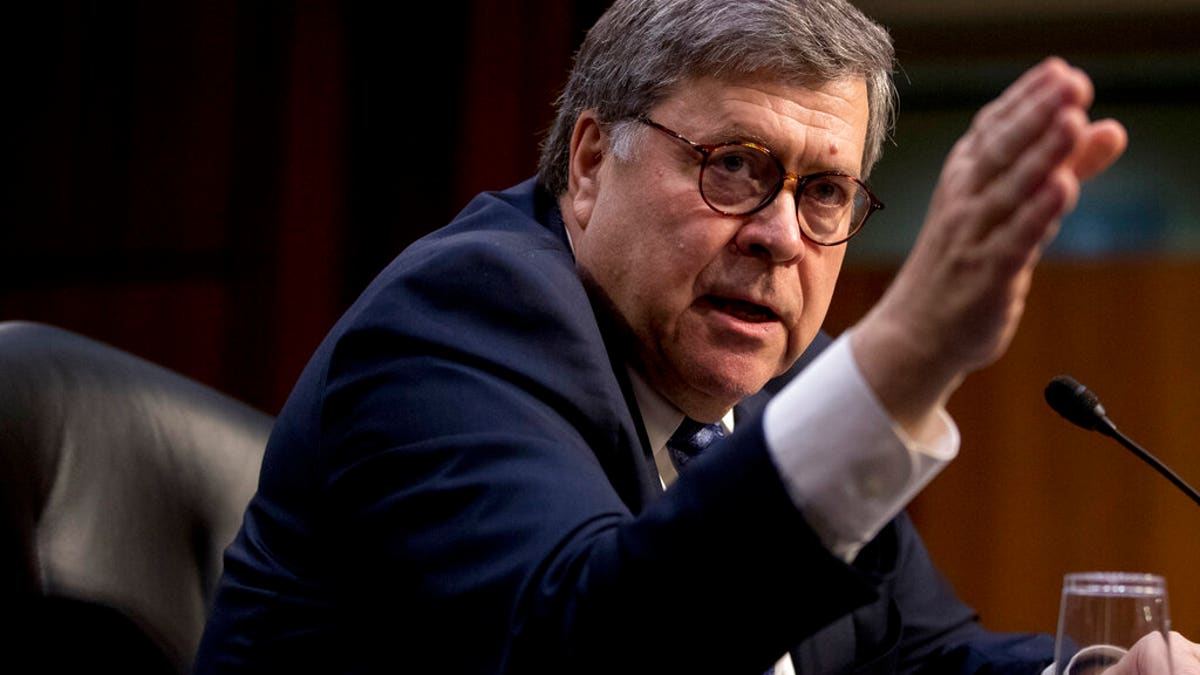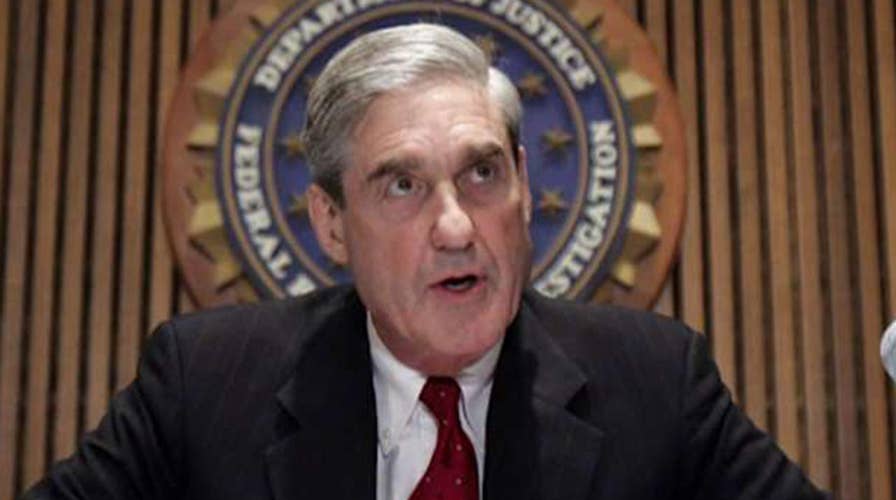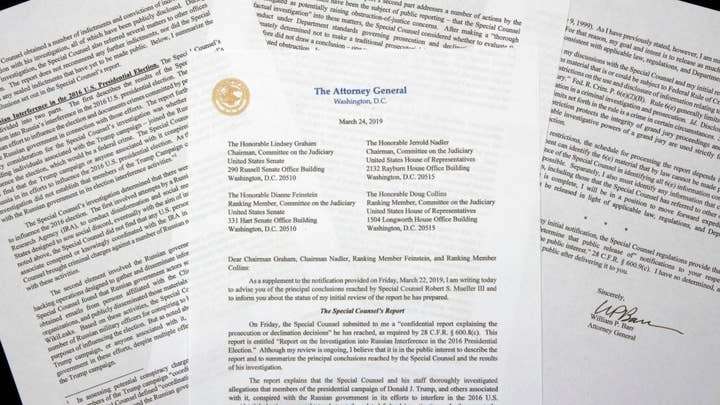Mueller agrees to testify under 'friendly' subpoena
Matt Gaetz and Alan Dershowitz react to breaking news.
Special Counsel Robert Mueller ended his years-long Russia investigation in March — and lawmakers on Capitol Hill were eager to make his final report public.
The House of Representatives unanimously voted (420-0) on March 14 in favor of a resolution to urge Attorney General William Barr to release Mueller’s full report to Congress and the country for the sake of "transparency."
The probe was intended to examine Russian election interference and whether President Trump's campaign colluded with Russian officials during the 2016 election — and has since resulted in charges for several former Trump campaign associates, though none have directly related to collusion.
Trump has called the investigation "illegal" and "conflicted," arguing Mueller should have never been appointed in the first place.
WHAT IS 'COLLUSION,' AND IS IT A CRIME? RUSSIA INVESTIGATION'S BUZZWORD EXPLAINED
“THIS SHOULD NEVER HAPPEN TO A PRESIDENT AGAIN!” Trump exclaimed in a tweet after claiming "collusion" was an excuse invented by Democrats after Hillary Clinton lost the 2016 presidential election.
Here's a look at what happened after Mueller finally dropped the long-awaited files that spell out his findings.
Mueller submitted his report to Barr
When the investigation — which began in May 2017 — concluded, Mueller first released his final report to Barr, who has been overseeing the special counsel since he took office in February.
"At the conclusion of the Special Counsel's work, he or she shall provide the Attorney General with a confidential report explaining the prosecution or declination decisions reached by the Special Counsel," Cornell Law School explains in a blog post detailing the federal regulations.
Throughout the two-year probe, Mueller has also been required to flag any documents that detail any impending prosecutions or witness interviews, among other actions.
Barr reviewed the documents

Attorney General William Barr will be the first to receive the official copy of Mueller's report. (AP Photo/Andrew Harnik)
It was up to Barr to determine how much information Congress would see.
He was obligated to tell members of Congress why Mueller decided to end the investigation but he's not legally required to provide any supporting paperwork, according to The New York Times.
Barr redacted information he deemed inappropriate or harmful to a person's character if he or she has not been charged with a crime. Classified information, grand jury items and closed-door testimony was also protected.
In a February letter to Barr, Democratic leaders argued Trump, given his status, should not fall under those categories of protection.
"I also believe it is very important that the public and Congress be informed of the results of the special counsel's work."
"Although we recognize the policy of the Department to remains sensitive to the privacy and reputation interests of individuals who will not face criminal charges, we feel that it is necessary to address the particular danger of withholding evidence of misconduct by President Trump from the relevant committees," the lawmakers wrote.
During his confirmation hearing, Barr stressed that he would be as transparent as possible while following federal laws.
"I also believe it is very important that the public and Congress be informed of the results of the special counsel's work," he told the Senate Judiciary Committee in January, adding that he doesn't believe Mueller would be involved in a "witch hunt."
Congress received Barr's summary of the report
Once Barr sifted through the lengthy report — which took days to fully read — he gave lawmakers a summary.
He released the "principal conclusions" of the probe in a four-page letter to Capitol Hill lawmakers, stating definitively that Mueller did not establish evidence that Trump's team or any associates of the Trump campaign had conspired with Russia to sway the 2016 election, "despite multiple offers from Russian-affiliated individuals to assist the Trump campaign."
Although Mueller noted his report did not "exonerate" Trump on obstruction, Barr wrote, the "report does not recommend any further indictments, nor did the Special Counsel obtain any sealed indictments that have yet to be made public."
WHO IS WILLIAM BARR? 5 THINGS TO KNOW ABOUT THE ATTORNEY GENERAL
"No Collusion, No Obstruction, Complete and Total EXONERATION," Trump later wrote on Twitter. "KEEP AMERICA GREAT!"
Many lawmakers who were dissatisfied with the documents Barr provided called for hearings seeking more information.
"This is going to be a legal battle," Rep. Doug Collins, R-Ga., commented on the likelihood of lawmakers attempting to seek confidential information from the report, according to USA Today.
The public got a look at the report
The public was able to get its first detailed look at Mueller’s bombshell report in mid-April.
Barr released the 448-page “limited” redacted document after giving a brief interpretation of the findings.
The major takeaway, according to Barr, was that there was no evidence of collusion between the Trump campaign and Russia. However, the report also noted that while it didn’t conclude Trump committed a crime, it doesn’t formally “exonerate” him.
But there were some key details Barr previewed that constituents and lawmakers alike were eager to learn more about, particularly Trump’s dialogue with campaign associates and the issue of obstruction of justice.
Here are some highlights from the report.
Mueller to testify
Following a subpoena, Mueller agreed to testify on his findings in front of the House Judiciary and Intelligence committees. He'll testify for several hours of hearings before two House panels on July 24.
Fox News' Brooke Singman, Gregg Re and The Associated Press contributed to this report.






